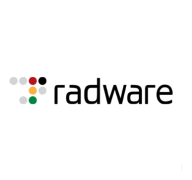

Nexusguard DDoS Protection and Radware DDoS are leading solutions within the cybersecurity industry, both dedicated to mitigating distributed denial-of-service attacks. Nexusguard has an edge in terms of affordability and customer support, making it a popular choice for those who value cost-effectiveness and support quality. Conversely, Radware's strength lies in its comprehensive features, providing a more extensive suite appealing to enterprises that find value in advanced capabilities.
Features: Nexusguard offers extensive real-time monitoring, threat detection, and flexible data scrubbing to reduce downtime. Its customer-focused managed services and local scrubbing functionality further enhance its offering. Radware excels with on-demand signature creation, seamless integration with Guard Technology, and superior Layer 7 protection using its multi-layered defense strategies. Radware's real-time attack detection and use of behavioral analysis make it stand out for sophisticated threat scenarios.
Room for Improvement: Nexusguard could further enhance its platform by expanding its threat data sources and optimizing response times for zero-day attacks. Enhanced customization for small-scale enterprises would also be beneficial. Radware can improve by simplifying configurability for broader accessibility, reducing false positives, and streamlining UI/UX for ease of use, particularly for non-technical users.
Ease of Deployment and Customer Service: Nexusguard is praised for a straightforward deployment process with exceptional customer support, ensuring seamless integration into existing infrastructures. Radware, requiring a more complex setup due to advanced configurations, compensates with comprehensive resources and training programs. Additionally, Radware's support team is noted for their proactive engagement and technical assistance.
Pricing and ROI: Nexusguard offers competitive pricing packages with flexible licensing that ensures scalability, granting a significant return on investment for businesses needing basic to moderate protection. Radware, while starting at a higher price point, justifies the cost with extensive capabilities and effectiveness in complex threat environments, appealing to those seeking robust, long-term security investments.
| Product | Market Share (%) |
|---|---|
| Radware DDoS | 8.2% |
| Nexusguard DDoS Protection | 1.6% |
| Other | 90.2% |

| Company Size | Count |
|---|---|
| Small Business | 19 |
| Midsize Enterprise | 10 |
| Large Enterprise | 21 |
Founded in 2008, Nexusguard is the global leader in fighting malicious internet attacks. Nexusguard protects clients against a multitude of threats, including distributed denial of service (DDoS) attacks, to ensure uninterrupted internet service. Nexusguard provides comprehensive, highly customized solutions for customers of all sizes, across a range of industries, and also enables turnkey anti-DDoS solutions for service providers. Nexusguard delivers on its promise to maximize peace of mind by minimizing threats.
Radware DDoS provides robust multi-layer protection against distributed denial of service attacks, featuring real-time monitoring and anomaly detection. Its scalable cloud-based and on-site deployment options ensure effective safeguarding of critical infrastructure.
Offering comprehensive defense, Radware DDoS includes features like data scrubbing, signature updates, and SSL-based mitigation. Integrated platforms and a user-friendly interface streamline its deployment. With advanced reporting, analytics, and behavioral analysis powered by machine learning, users experience fewer false positives. Despite these strengths, users highlight the need for improved scalability, seamless deployment, and enhanced machine learning capabilities. Better documentation, pricing, and customer service remain areas of improvement.
What features does Radware DDoS offer?In industries like banking, telecom, and government, organizations employ Radware DDoS to protect networks from DDoS attacks. It ensures server, web service, and mail security while enabling traffic monitoring and unauthorized access blocking. Its cloud-based options serve entities seeking infrastructure security and network traffic analysis.
We monitor all Distributed Denial-of-Service (DDoS) Protection reviews to prevent fraudulent reviews and keep review quality high. We do not post reviews by company employees or direct competitors. We validate each review for authenticity via cross-reference with LinkedIn, and personal follow-up with the reviewer when necessary.